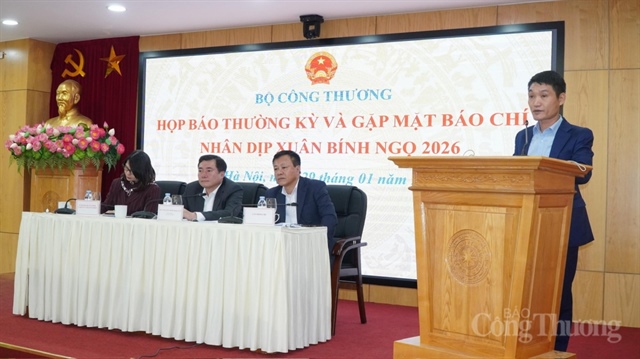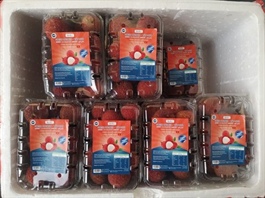Vietnamese coffee industry strives to meet new EU rule
Vietnamese coffee industry strives to meet new EU rule
The European Union (EU) plan to ban the import of coffee produced on deforested or degraded land from the end of 2024 puts pressure on the Vietnamese coffee sector to do its best to comply with the new regulation.

The ban is part of the EU’s Deforestation-Free Regulation (EUDR) that was approved by the EU Parliament on April 19 to guarantee that the products EU citizens consume do not contribute to deforestation or forest degradation worldwide, according to the European Commission (EC).
The new rule will take effect around December 2024 and January 2025, which means the Vietnamese coffee sector has around 18 months to prepare to meet the EUDR standards, according to the Vietnam Coffee and Cocoa Association (Vicofa).
By promoting the consumption of ‘deforestation-free’ products, the new rule is expected to bring down greenhouse gas emissions and biodiversity loss, the EC stated.
Coffee is among various commodities subject to the EUDR, including cocoa, palm oil, and rubber, plus products derived from them, such as chocolate, tires, and shoes.
This is a great challenge to Vietnam’s billion-dollar coffee industry since out of 90,000ha of Vietnam’s forests lost in 2021, about 8,000ha are in coffee growing areas, said Nguyen Nam Hai, chairman of Vicofa.
This issue must be addressed as soon as possible if they are to continue being used to grow coffee because the beans grown there will be classified as having been cultivated on deforested land, Hai stressed.
The Vicofa leader also warned about the increased risk of farmers destroying forests to farm coffee since the domestic coffee price has recently reached VND70,000 (US$3) per kilogram, the highest over the past 15 years.
According to Vicofa, the EU is a key export market for Vietnamese coffee as it represents about 40 percent of Vietnam’s annual coffee exports.
Enterprises buying Vietnamese coffee are mostly large corporations such as Nestlé, JDE, Newmanm, and Louis Dreyfus, among others.
If it is to stabilize the market share of coffee exports to the EU, Vietnam’s coffee industry must strive to comply with the EUDR, Hai said.
“There is not much time left before the new rule comes into force, so it is necessary to accelerate our preparations to meet it,” the association head urged.
Tran Thi Quynh Chi, regional director of the Sustainable Trade Initiative, headquartered in the Netherlands, said that Vietnam is one of the countries considered to have very low rates of deforestation due to coffee production.
Chi cited an assessment from a very large buyer in Europe as saying the deforestation rate for coffee production in Vietnam was only 0.1 percent, which represents great potential for Vietnamese coffee not to violate the EUDR.
Despite agreeing with Hai’s assessment, Chi warned that “Vietnam is still at risk as farmers may destroy forests for coffee production in the coming time to earn more profit from coffee prices being on the rise.”
She also recommended that preparations under the EUDR should be made according to a suitable road map, as it is hard to implement all solutions at the same time.
In order to conform to the new rule, it is a must to boost the traceability of coffee in Vietnam by improving the coordination among coffee growers, traders, and exporters, Hai said.
Nguyen Phu Hung, chairman of the Vietnam Forestry Science and Technology Association, called for training courses to keep the farmers well informed about the anti-deforestation regulation.
Under the EUDR, the Vietnamese coffee sector must apply global positioning systems for each specific coffee-growing area, based on which deforestation risks are monitored by remote sensing systems, said Nguyen Do Anh Tuan, director of International Cooperation Department under the Ministry of Agriculture and Rural Development.
"The industry will face many challenges to meet all EUDR standards. However, challenges also come with opportunities for boosting exports and we must be ready to take advantage of this opportunity,” Tuan said.
He added Vietnam desperately needs the legal assistance of the EU as well as other partners to make reports and declarations in line with EUDR.
“Strict compliance with the new regulation will help coffee products from Vietnam be more competitive in the EU market than those from countries that have yet to meet it,” Tuan commented.
Currently, a major part of Vietnam’s total coffee acreage basically meets EUDR standards, he noted.




























